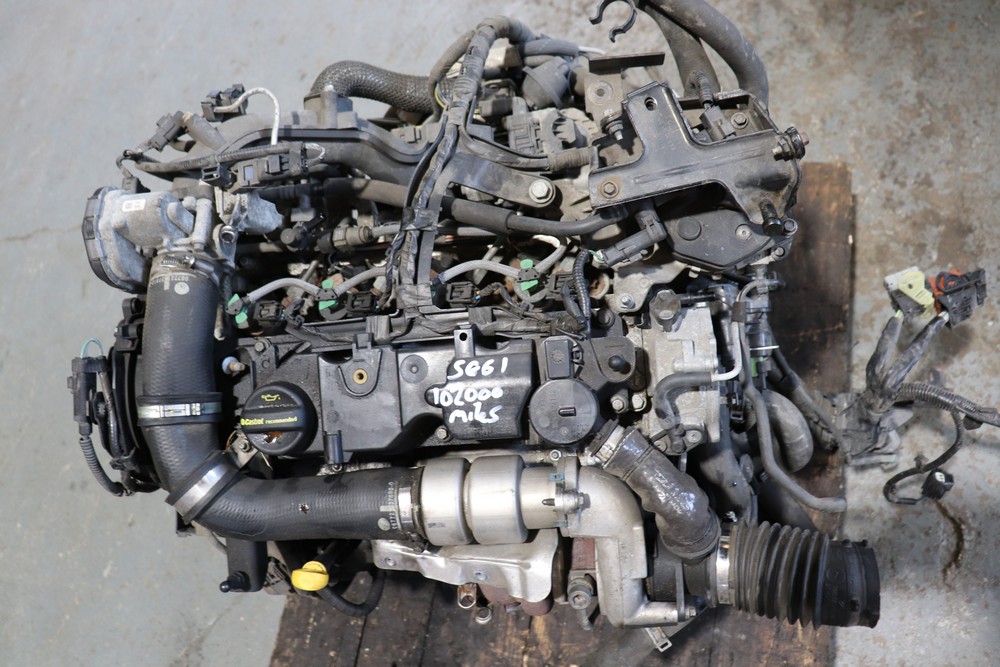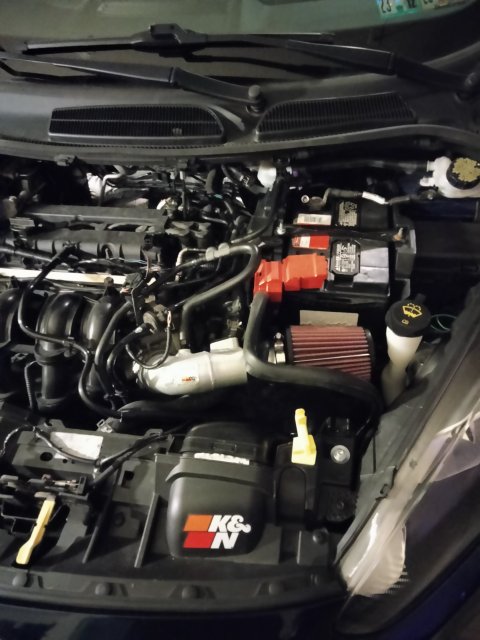Expert Tips for Optimizing Your Ford Fiesta Engine Efficiency
Expert Tips for Optimizing Your Ford Fiesta Engine Efficiency
Blog Article
The Future of Engines: Innovations Driving Sustainable Power Solutions
As the vehicle industry browses the crucial change towards sustainability, the future of engines is progressively specified by groundbreaking innovations. Electric engine advancements, together with encouraging developments in hydrogen gas cells and biofuels, are improving the landscape of power options.
Electric Engine Dope
The development of electrical engine advancements indicates an essential shift in the aerospace and auto markets, driven by the urgent demand for sustainable alternatives to nonrenewable fuel sources. This change is defined by substantial improvements in battery technology, power electronic devices, and electric motor design, which jointly enhance the efficiency and efficiency of electric engines.
Current advancements have actually brought about the creation of lighter, more energy-dense batteries, such as lithium-silicon and solid-state batteries, which guarantee longer varieties and shorter charging times. In addition, improvements in electrical motor performance, such as the usage of irreversible magnets and advanced cooling down systems, make it possible for electrical engines to operate properly under varying problems. These enhancements not only boost vehicle performance however additionally add to a reduction in general power intake.
Furthermore, the assimilation of sophisticated software algorithms has actually optimized energy administration in electric automobiles, enabling regenerative braking and predictive billing techniques. As producers progressively welcome electrical propulsion, the aerospace and vehicle industries are observing a standard shift towards greener modern technologies. This development not only meets governing needs however likewise aligns with consumer choices for eco pleasant transportation options, solidifying electric engines as a keystone of future lasting flexibility.
Developments in Biofuels
As the aerospace and automobile sectors progressively focus on lasting energy resources, innovations in biofuels become a complementary option to electrical engines. Biofuels, obtained from organic products such as plants, waste, and algae, provide a cutting-edge method for decreasing greenhouse gas emissions and reliance on fossil fuels.
Current research has concentrated on improving the effectiveness and sustainability of biofuel production. Second-generation biofuels use non-food feedstocks, reducing competition with food supply and reducing ecological effect. Furthermore, advancements in artificial biology have made it possible for the engineering of microorganisms to produce biofuels better, bring about greater yields and lower production expenses.
Additionally, the advancement of drop-in biofuels permits seamless combination into existing framework, allowing a smoother transition for sectors generally reliant on fossil fuels. ford fiesta engine. These fuels can be utilized in current engines without adjustments, promoting their adoption throughout various industries
Investments in biofuel modern technology, along with encouraging plans, are necessary to drive innovation and scalability. As the worldwide community seeks to fight environment modification, biofuels offer a practical, prompt solution that lines up with the overarching goal of sustainability in transport and air travel.
Hydrogen Fuel Cell Modern Technology
An expanding variety of business and scientists are exploring hydrogen fuel cell modern technology as a sensible option to conventional source of power in transport and energy systems. This innovation transforms chemical power from hydrogen right into electrical energy through an electrochemical reaction, with water as the only byproduct, making it his response an eco-friendly option.
The core of hydrogen gas cells is the gas cell stack, where hydrogen molecules are divided into protons and electrons. The circulation of electrons produces electricity, while protons relocate with a membrane to incorporate with oxygen from the air, forming water. This procedure leads to high effectiveness and low discharges, placing hydrogen fuel cells as a critical gamer in the shift to sustainable power.
Substantial innovations have actually been made in boosting the toughness and performance of fuel cells, alongside minimizing costs through cutting-edge manufacturing strategies. The advancement of hydrogen production techniques, such as electrolysis powered by sustainable energy sources, enhances the sustainability of the total system. As facilities for hydrogen refueling expands and production methods come to be much more reliable, hydrogen fuel cell technology holds terrific pledge for decarbonizing different industries, including durable transport and stationary power generation.
Crossbreed Solutions and Their Effect
Hybrid systems stand for a considerable advancement in sustainable engine modern technology, merging conventional internal combustion engines with electric propulsion to optimize power performance and reduce discharges (ford fiesta engine). This twin approach permits lorries to use both power sources, enabling greater flexibility in energy consumption and lowering reliance on nonrenewable fuel sources

In enhancement to environmental benefits, crossbreed systems supply customers a viable change in the direction of fully electrical lorries. They ease array stress and anxiety by integrating the comfort of gas with the advantages of electrical propulsion, making them an eye-catching alternative for a larger target market.
The Function of AI in Engine Layout
Leveraging innovative formulas and artificial intelligence strategies, the vehicle industry is increasingly integrating artificial knowledge (AI) into engine style procedures. AI improves ford fiesta engine the performance and efficiency of layout by evaluating substantial datasets to identify ideal setups and efficiency parameters. This ability permits engineers to mimic numerous operating problems and forecast engine actions under numerous situations, significantly decreasing the time and cost associated with typical prototyping methods.
Additionally, AI facilitates the advancement of advanced products and combustion procedures customized for sustainability. By maximizing gas effectiveness and lessening discharges, AI-driven layouts line up with worldwide initiatives focused on minimizing the carbon impact of automotive engines. Device learning algorithms can likewise predict maintenance needs, leading to enhanced integrity and long life of engine elements.
Moreover, AI is crucial in the combination of electrification innovations, such as hybrid systems, where it can maximize battery monitoring and power recuperation processes. As the market moves in the direction of even more sustainable power options, the duty of AI in engine style comes to this link be significantly crucial, driving advancement and improving the performance of future engines. Inevitably, the partnership in between AI and engine design proclaims a new era of smarter, cleaner, and more reliable automobile modern technologies.

Final Thought
In verdict, the future of engines is being shaped by a convergence of innovative innovations that prioritize sustainability. Electric engine innovations, biofuel growths, hydrogen fuel cells, and crossbreed systems jointly contribute to a considerable decrease in emissions and ecological influence.
Electric engine developments, alongside promising advancements in hydrogen gas cells and biofuels, are improving the landscape of power remedies. In addition, renovations in electric motor performance, such as the usage of permanent magnets and progressed cooling down systems, make it possible for electric engines to run properly under varying conditions. By enhancing gas performance and reducing discharges, AI-driven styles line up with international campaigns aimed at minimizing the carbon footprint of auto engines. As the industry relocates towards more sustainable power services, the role of AI in engine design ends up being progressively crucial, driving development and boosting the performance of future engines. Electric engine innovations, biofuel growths, hydrogen gas cells, and crossbreed systems jointly contribute to a substantial decrease in discharges and ecological impact.
Report this page